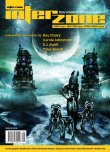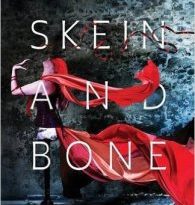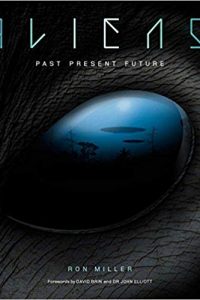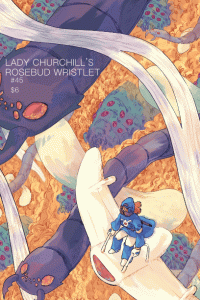Lois Tilton reviews Short Fiction, early February
As readers should have noted, the Locus Recommended Reading List for 2011 has just been released, which in my mind is the kickoff for the annual awards season. As one of the contributors to the short fiction section, I must say that I am rather pleased with it this year. Which is to say, a good number of the stories I liked best are on the list, and only a small number of the ones I judged unworthy.
A list like this can never satisfy everyone. There will inevitably be objections, often along the lines of: Why didn’t you include “Year’s Best Story?” Very often, the reason is: No one among compilers of the list ever saw it. It’s quite frustrating when my colleagues single out a certain work as superior and all I can say is that I never received a copy for review. I’ve heard similar complaints from other colleagues serving on awards juries who would like to read certain works that they never receive for consideration.
So this is a call-out to genre publishers, especially to the publishers of novellas and original anthologies. Send us your stuff. Don’t keep us from putting it on the list.
Publications Reviewed
- Interzone, 238 Jan-Feb 2012
- Clarkesworld, February 2012
- GigaNotoSaurus, February 2012
- Flurb #12, Fall-Winter 2011
- Redstone SF, February 2012
- Something Wicked #18, February 2012
- Apex Magazine, February 2012
Interzone #238, Jan-Feb 2012
Only four stories in this issue, I think because the first is longer than usual. Four dystopian futures.
“Fata Morgana” by Ray Cluley
It would seem that the seas have risen; the narrator [why can’t authors seem to work a name in somewhere?] hates the island city where he lives:
a colossal cairn of crumbling concrete, vomited from the depths. At the water, tarred timbers reach out like rigid straight-edged tentacles to form docks and jetties and wharfs and piers.
There is a brutal class system in place, with the lower levels at the top and the despised roofers at the bottom, despite the fact that the sea often washes through the lower dwellings, bringing with it sharks as well as more savory fare; also carrying sewage. The narrator is an orphan whose parents escaped the city, although they probably died in the attempt; this is his own forbidden [why?] dream.
I find that I can’t quite get over the city’s upside-down stratification, which distracts me from the nameless narrator’s earnest and ingenious struggles. I can’t credit the city’s economy, either, which seems to be based entirely on seafood – hardly a scarce commodity on an ocean world.
“Fearful Symmetry” by Tyler Keevil
The author doesn’t reveal much about the background of this setting, which the story doesn’t really require. It suffices that there seems to be some kind of world administration and lots of mutation. Nicole has come to a Siberian village because the locals want to kill the man-eating tiger that’s been attacking them; the administration she works for wants to map its DNA before deciding whether to allow this. She discovers a lot of poaching of the rare and endangered going on, with the tacit acceptance of the local wardens, who were once poachers themselves and may not entirely have given it up. She also discovers why the tiger was pissed off.
In part, a murder mystery. What makes this one are the characters, particularly the vodka-drinking locals, neither quite on one side of the law or the other.
While Sam studies the perimeter, she and Vargas check the tent. Inside they find a rug, a pot-bellied stove, and a mattress. The mattress is shredded and ripe with blood. They crouch down on either side of it. Vargas touches the blood. It is frozen.
“Why was he sleeping out here?” she asks.
“So he can skin his hides,” he says, “without us finding him.”
–RECOMMENDED
“God of the Gaps” by Carole Johnstone
It seems that the academy for creepy kids is making a field trip to the ALIEN ATTACKS!!! house of horrors, where, having escaped with their lives mostly intact, “Miss Daisy” and Brian find a museum devoted to rectal probes, with a curator even more creepy.
Much in this piece is unclear or fails to make sense. Such as why a school that frowns on its employees saying “bloody” would send them to an amusement where the risk of injury seems quite real. Or the exact status of “Miss Daisy” in the arrangement. Or why the author loads the front half of the story with all this off-puttingness, before coming too late to the secret point.
“The Complex” by E J Swift
Yun has just completed her 40-year sentence on a prison world, constructing cities for immigrants who don’t want her among them now that she’s free. But Yun wants to remain. She fears the return to Earth, fears the journey in stasis. “I don’t want to go back in a box. Alive is alive and dead is dead. Frozen is something else.”
There is a faint aura of the surreal hovering over this setting, like the ubiquitous red dust that sickens the convicts. The prison is both brutal and solicitous to its inmates, but the world itself drives many of them to madness. Yun is known as the Oracle.
Up there on the horizon, is that movement? In the shimmering air, it is possible to witness false images, and speak to them too.”
It is this sense of strangeness, evoked in the author’s careful prose, that raises this one above the ordinary.
–RECOMMENDED
Clarkesworld, February 2012
Three stories again this month. Must be a trend.
“And the Hollow Space Inside” by Mari Ness
When Crystal learns her daughter will be born anencephalic [or so I infer], she allows her to be used in a problem for colonizing Mars, in which human bodies will be controlled by programming to be able to survive there. But she is conflicted about this decision and often refuses to acknowledge that her daughter is alive at all.
The eight of them reach the terminal, turn in unison, and wave in precision. I have to remind myself once again that I have been assured that they all have individual implants and computers, individual programming. They were all expected to perform different tasks, after all; it would make no sense to have them.
A story about human ties, about motherhood. About ambivalence. It’s told by Crystal in small sound bites over the course of Amy’s life. The emotional story reads true; the SFnal premise doesn’t. It’s not clear what sending eight humans to Mars is going to accomplish. It’s not clear, if time is so critical, why the project begins by growing infants to adulthood. It’s not clear why the original programmed pioneers have returned to Earth and why the authorities are reluctant to let them go back to Mars. And it seems a flat contradiction that, if Amy is now officially the property of the program, her parents’ agreement is required again to release her.
“A Hundred Ghosts Parade Tonight” by Xia Jia, trans Ken Liu
Ghost Street was made as a tourist attraction, but the tourists have abandoned it, leaving it to the ghosts. The ghost souls are housed in android bodies, now playing out their roles for Ning alone, who was abandoned there fifteen years ago. The Monk teaches him, Yan Chixia protects him, the street vendors ply him with their wares, and most importantly, Xiao Qian cares for him. But this state of affairs cannot endure forever.
Here is the type of literary science fiction that Clarkesworld does so well, where exceptional prose mingles the tropes of SF and fantasy and inform us that such distinctions are not so important. There are delightful images here:
In my dream, I see Ghost Street turning into a long, thin snake. The Old Ghost Tree is the head, Lanruo Temple the tail, the slate slabs the scales. On each scale is drawn the face of a little ghost, very delicate and beautiful.
In this case, I can’t tell whether to bestow more praise on the author or translator, but I note that Liu, while making a name for himself as an author, is also doing a lot of these translations from Chinese authors.
–RECOMMENDED
“All the Young Kirks and Their Good Intentions” by Helena Bell
A light look at extinction.
T’s mother says names have power. They are invasive, like a white fungus, a vine, a jumping carp. Names can take hold, changing the host and adapting it to become the perfect carrier. Why name your son and daughter after an ordinary person: Martha, George, John, Abigail when you can name your children something which will inspire them to a greatness which is not their own, but could be?
The James Tiberius Kirks have nothing in common but their names, but the corruption spreading across both Earth and the colony on the moon is stronger than any of them.
Sad irony, complete with allusions. It takes more than a name to confer greatness, and there is no Grail.
GigaNotoSaurus, February 2012
A nice long story for this month.
“All the Flavors: A Tale of Guan Yu, the Chinese God of War, in America” by Ken Liu
Historical fiction. Just after the Civil War, a group of Chinese gold miners arrives in Idaho City. Jack Seaver sees them as potential customers. His embittered wife sees them as heathens. But their daughter Lily sees them as fascinating new friends, loving their songs, their cooking [when it doesn’t involve dog] and their stories.
The gongs, cymbals, wooden clappers, and drums made such a racket that her heart wanted to beat in time to their rhythm. The high-pitched fiddle with only two strings wailed so high and pure that Lily thought she could float on air, just listening to it.
The story alternates between two parts: the first, told primarily from Lily’s point of view, a tale of tolerance and intolerance, as the Chinese miners settle into the Idaho town. The second is the nested story of Guan Yu, told to Lily by Lao Guan, who may or may not be the incarnation or avatar of the deified general; the work is ambiguous on this point. It is not, however, morally ambiguous. We can rank the town’s whites on the scale to which they are tolerant or positive towards the Chinese, with Lily at the top and the murderous Missouri Boys at the bottom. The Chinese, however, are uniformly and flawlessly moral. Now, we know this isn’t the case with Chinese in general. The story Lao Guan tells Lily makes it clear that both at home and abroad, there are plenty of his countrymen who are cruel and venal. It’s just that, somehow, only the perfectly virtuous have come to mine gold in Idaho. Or else the author is writing with a blunted moral edge.
Flurb #12, Fall-Winter 2011
Belated look at the online Ruckerzine on its 5th anniversary. There are again, annoyingly, too many novel excerpts, but some nice short pieces of entertaining absurdity as well.
“Fjaerland” by Rudy Rucker and Paul Di Filippo
Mark and Laura are on the run after the Feds have seized their semiotic analyzer and pursued them with charges designed to silence them. The problem with the device is that it reveals too much of the truth. But unexpected revelations and opportunities are waiting for them in Norway.
Weird and somewhat icky fantasy. “Elver wasn’t a bad guy, for being an immortal subaqueous demigod who communicated via pictures on his flesh.” However, I don’t think readers will fully share Mark and Laura’s optimism in their new partnership.
“The Curse of the Were-Penis” by Emily C Skaftun
A chance encounter under a full moon changes Hal.
He remembered walking down leafy streets. He’d cut through the park, and there he’d met . . . someone. The memories that followed were chaotic, incomplete, painful, but still sensual.
Dark humor. The autonomous penis is hardly original, but the full moon adds a new twist.
“Pulped and Bound Monsters” by Adam Callaway
Another in the author’s series set in the weird paper city of Lacuna. This one is mostly travelogue, as Samson the Papier-mâché panther makes a perilous journey through the city’s streets in search of his creator Varvara. There is interest in the bibliological metaphors:
The night smelled of yellowed pages and the sky was the color of an empty inkwell. Samson stretched out on a sofa, rustling like the leaves of a forgotten manuscript.
The story element, however, is minimal at most.
“The Oyster and Alice O” by Anna Tambour
Surreal erotica inspired by Lewis Carroll, opening in epigraphical verse:
Most agoraphobic oysters,
Ever sweet and passive,
Are torn from their homes
To slide down throats and die in gastric acid.The lucky ones are fried in oil
And die ever so quickly.
Others die on their opened house
Smothered in spinach, ickily.
But one fortunate and resourceful mollusk slides down the outside of Alice’s pearl-encircled throat, to begin a muscosally satisfactory relationship.
This is the sort of thing one hopes to find in this sort of zine, sensuous and witty, totally absurd.
–RECOMMENDED
“The Robert Armstrong Syndicated Newspaper Strip” by A S Salinas
The fictionalization of a never-before-seen comic from Flash Gordon’s creator, in which the eponymous hero, full of angst and years, carries out a mission on Titan at the Saturnalia festival, while attracting the sublethal attention of a series of underclothed females.
An odd work, very Flurbishly so, auctorial tongue firmly in cheek. One expects this sort of thing to be cast as high camp, but that element is minimized. The space opera aspects are quite up-to-date in many respects, as Robert and a self-described femme fatale exchange data packets in their saliva. But each segment ends in a faux-cliffhanger:
WHAT IS ROBERT FEELING? FIND OUT IN TUESDAY’S NEWSPAPER!
*
THE STORY SO FAR …Robert is sad.
“Gertrude and Ludwig Spin a Web” by Justin Patrick Moore
That being Stein and Wittgenstein, whose grandchildren are born as mutant spiders due to a mishap with the house’s atomic furnace, “a fission device powered by splitting the parts of speech into their constituent phonemes.”
More of a fictional narrative than a story, a short, sly piece full of language jokes and absurdity.
“Xuanito” by Ernest Hogan
Xuanito meets the corporate recruiter with her corporate drug sample, which interacts with his street drugs in unexpected ways. Quite overblown and not so original.
“Big Ripples Without a Splash” by Don Webb
Brian goes to the Golden Gate Bridge to commit suicide, but thoughts of the pain this deed would cause his aged mother deter him. He decides that the solution would be a simulation of himself, operating his own body, that his mother wouldn’t be able to tell from her real son. He fails to think this entirely through.
A depressing piece of SF about coping with depression. A whole lot of typos make the read jarring.
“Concerning Tavia” by Martin Hayes
The protagonist has dreamed all his life of the goddess who came to him once, in his youth.
The moon was low but it was bright enough to see her as she came across the fields, butterflies danced about her and on the air a scent of golden primrose came his way. And then, as she neared him, the bees swept down and engulfed her, spinning, rotating like a tiger-striped whirlpool and when they once more took to the star filled sky he could see that she was beautiful.
Foolishly, he tried to explain this to others, to make them understand how it was possible, but miracles aren’t explicable. The story would be more of a tragedy, not for his yearning, but because he used it as a wedge between himself and the rest of humanity.
“Walls Between Worlds” by Will Ellwood
Arkady is an agent in a war being waged across parallel worlds. The London where the story finds him is a police state where women are protesting the lack of information about their missing men – missing in some other world. Arkady is tempted to tell an old friend the truth, despite the knowledge that he is being watched; a superior threatens the safety of his wife, in the world he likes better than this one. It’s a cynical business, built on lies.
“Enough of the truth,” Arkady said. “Even if she can’t prove my story to anyone, it’s too much for you. But you’d rather no one said anything to anyone. I don’t suppose you’ve told the Irish about my wife yet. ”
“It makes everything so much simpler to control when no one knows anything.”
A dystopian setting and a glimpse at a dystopian story – too short a glimpse to let readers care too much.
“After the Thaw” by Eileen Gunn
Things aren’t quite as Elise expected when she signed up for cryogenic suspension, an unknown period of time ago.
You are fully thermed and awakened, and it’s time you were gainfully employed. It is in your own best interest, as well as in ours. We can’t afford to keep you on ice forever. It’s time to warm you folks up and put you to work, ha, ha.
Elise’s frustrations with the new systems are entertaining.
Redstone Science Fiction, February 2012
A rare instance of fantasy in this ezine.
“White Lies” by Thoraiya Dyer
Brian has fallen hard for Felicity during the trip to China where they met. But Brian is worried because, earlier in their relationship, he wasn’t honest about himself. Now he knows that as soon as they leave Chinese soil, where the American wetware net doesn’t function, Felicity will look him up and realize the truth.
She’d believe the net and turn on him, the way she’d turned on that pickpocket at the Great Wall, leaving him with a handprint on his face, rips in his shirt and a widening circle of his own friends staring voyeuristically in the direction of his departure.
The Brian/Felicity relationship has the necessary material for farcical humor. Unfortunately, it rests on the artificially contrived middle section of the story, involving the censorious Chinese government and Brian’s ex’s aunt – coincidences in which it it’s not possible to believe.
“Dragonfly Girl” by Chuck Wilkerson
Lily can talk to dragonflies. She can hear them, too. All the members of her family seem to have some sort of ability like this, and Lily’s mother, a woman of wisdom and kindness, wants Lily to learn by herself, as far as possible, how to deal with her gift.
He[r] mother turned, as calm as ever. An expression of mild disappointment on her face. Lily stood her ground, not defiant, but not shrinking, trying to be her mother’s equal.
More than anything, it’s a story of Lily’s mother, carefully guiding her daughter through life’s lessons. The editors are apparently not pretending it’s science fiction; they’re making an exception to their guidelines because they like the story, fantasy though it undeniably is.
Something Wicked #18, February 2012
Another issue of this New Zealand [correction — South African –ed.] dark fantasy zine, with three original stories and one reprint.
“How Satan Died & the Imprisonment of God” by Summer Hanford
Intriguing title. It seems that Satan, taking the form of a rat, is trapped by a grad student in her lab.
“I’ve come to inform you that your cruel exploitation of these creatures has landed you a spot in Hell,” squeaked the rat. “However, if you will consent to do my work on earth for the rest of your mortal life, I shall see that Hell isn’t so bad for you.”
“Nonsense,” replied the graduate student, unperturbed at finding an extra rat on her shelf. “This is science.” And she tossed him in the bin with the others.
An amusing voice.
“The Disposable Man” by Thomas Carl Sweterlitsch
McKinley is an artificial created for trash pickup, reaching the end of his programmed lifespan at age thirty. But this McKinley is recruited as an assassin with promises of an extra five years.
A particularly drear dystopian vision. The method of disposal is unusual, grossly ingenious.
“Billy Bogroll” by David McCool
Urban legend. The name belongs to the public toilet attendant suspected in the disappearance of many local children.
The story goes that the chambers beneath the toilets on Wood Street are the final resting place of many a missing child. The acid content of urine and bleach that washes through the pipes daily, also washes over the dead children in there, they say, rinsing them away layer by layer.
This one has the form of nonfiction and offers no conclusions, no closure to the mystery of the children’s deaths.
Apex Magazine, February 2012
Two stories involving tattoos – one more essentially than the other – and dysfunctional relationships, one more so than the other.
“Bear in Contradicting Landscape” by David J Schwartz
David is a writer [we don’t know if he’s ever been published] who one day on the El meets a character from one of his stories. Eddie tells him that he walked away from the apocalyptic landscape of the story and ended up in David’s reality.
“The bears—it seemed like they were around me that whole day. I’d drunk all the water, or poured it out, or something. The food was gone, too. I don’t remember the second night, but the next morning I woke up with a brown bear sitting on my chest. It didn’t hurt. I could still talk. I told him there were no fish in the river. He told me I was the fish, and he was throwing me back.”
David’s selfish and overbearing girlfriend L is made uneasy by this; she convinces herself that he is subconsciously editing reality and that she can’t tell if he’s been editing her life, which she has been recording in the tattoos on her body.
An unusual and imaginative piece that shades into the surreal and raises questions about the nature of reality and creation. Disclaimer: I workshopped an earlier version of the manuscript.
“My Body, Her Canvas” by A C Wise
A dysfunctional relationship between the self-loathing narrator and his tattoo artist.
My cheeks are gaunt, my eyes sunken; tendons and veins stand out, cords binding me together in the spaces between the silver studs and rings. I hate what I see. But Sarah will make me better. She’ll make me beautiful; I know she will.
There is nothing of the fantastic here, except for the images that Sarah exorcizes onto the narrator’s skin, and his nightmares. It’s a disturbing piece, but in a psychological way.







Pingback:Locus Online Early February 2012 « Panglossian Hubris
Pingback:How to Write Erotica (Especially for Erotica Podcasts) | fozier.co.cc
The magazine is published miNatura nonprofit founded in Havana (Cuba) in 1999 specializing in fantastic micro story, horror and science fiction. Each number is a special single issue. And made one of two competitions admissions to 25 micro story-lines-and the other on poetry fantastic. Currently redica in Spain.
Contact email: minaturacu@yahoo.es
Blog: http://www.servercronos.net/bloglgc/index.php/minatura/
Something Wicked is a South African magazine, not from New Zealand.